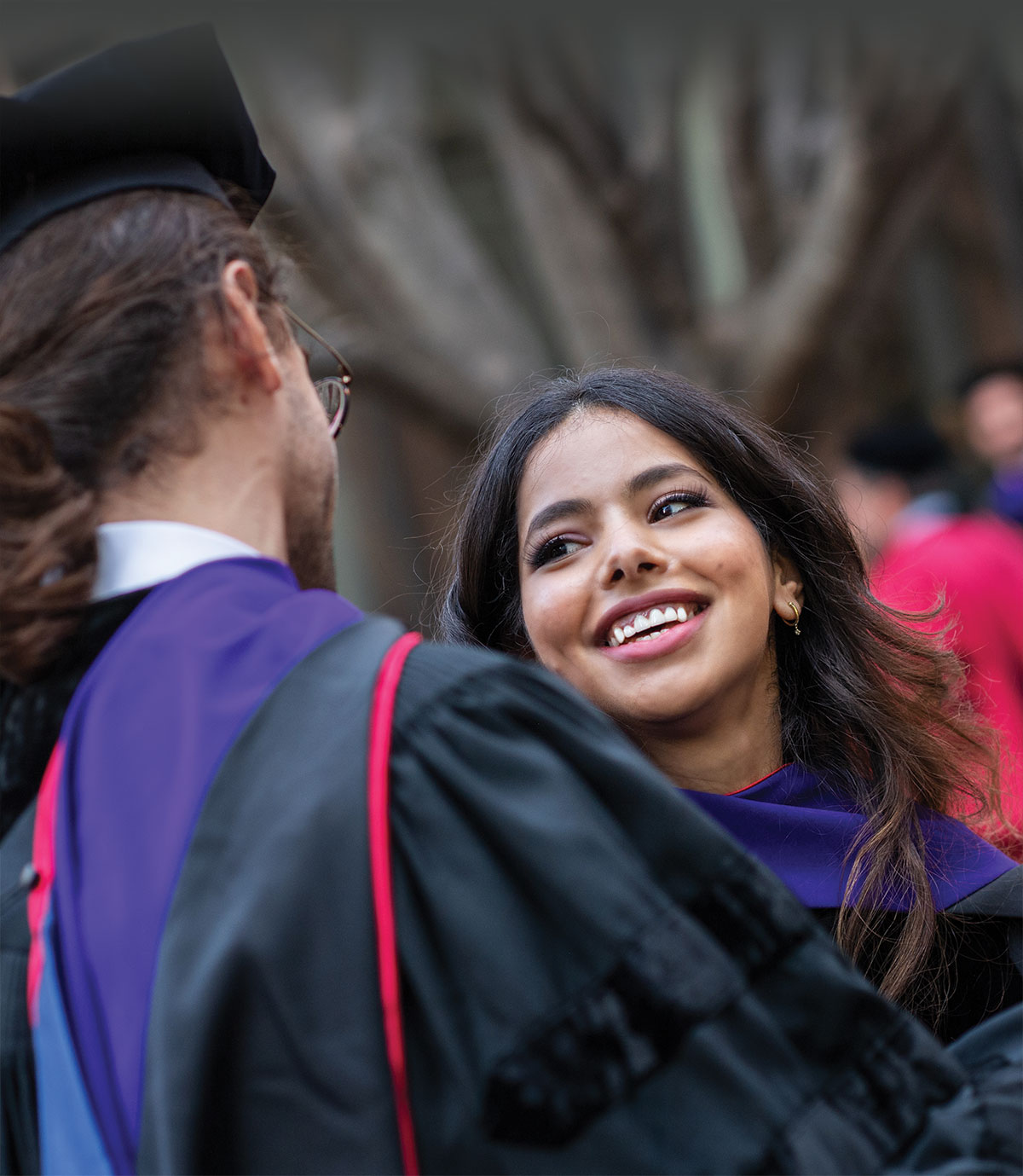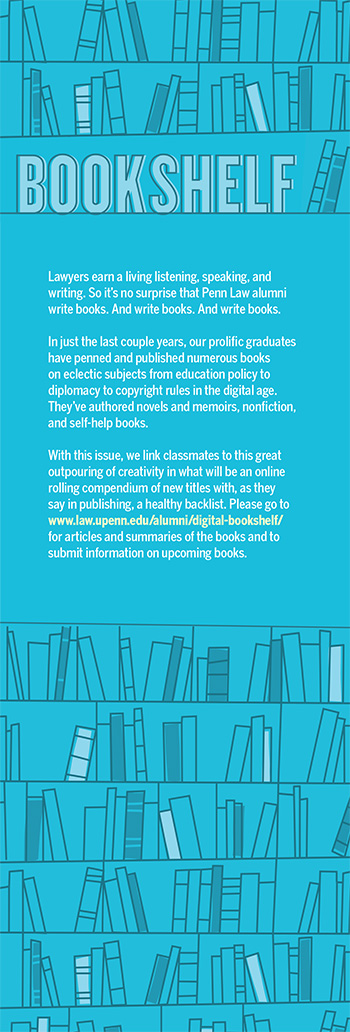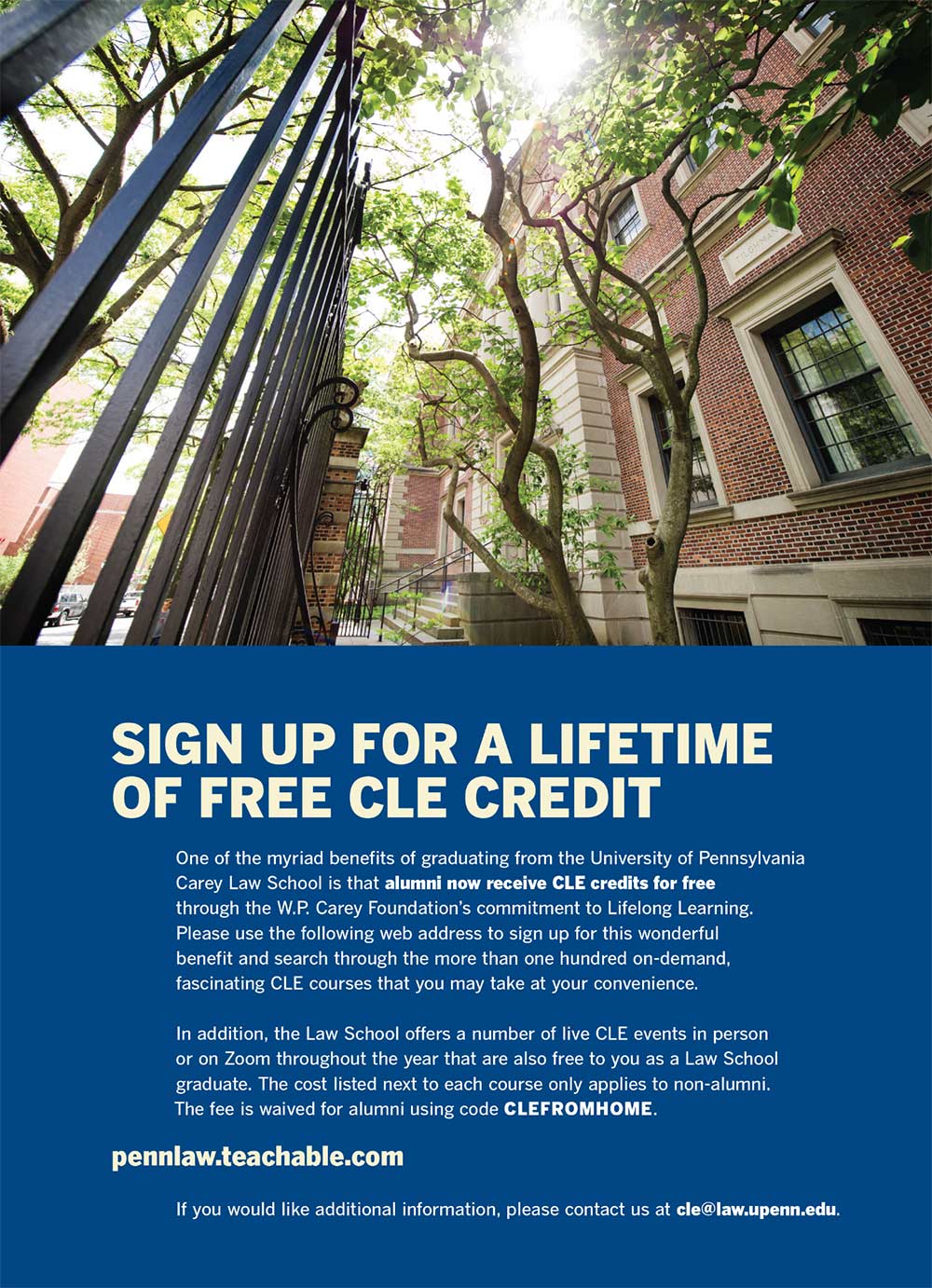Penn Law Journal Summer 2021

pennsylvania
carey law school
Spring 2022
What can be done?
carey law school
Spring 2022
What can be done?

Larry Teitelbaum
Design
Landesberg Design
Senior Contributing Writer
Lindsay Podraza
Contributing Writers
Blanche Helbling
Photography
Sameer Khan
Erika Lansner
Colin Lenton
Stephen Voss
Website
law.upenn.edu/alumni/alumnijournal/
Keep in Touch
Send news and photos to the attention of the editor.
Corrections
Every effort has been made to ensure accuracy. We offer our sincere apologies for any typographical errors or omissions. Please forward any corrections to the attention of:
Larry Teitelbaum
Editor, Penn Law Journal
University of Pennsylvania
Carey Law School
3501 Sansom Street
Philadelphia, PA 19104
Telephone 215 573 7182
Fax 215 573 2020
Email alumnijournal@law.upenn.edu
Connect with Penn Law
Law School Website law.upenn.edu
Twitter @PennLaw
Facebook facebook.com/pennlaw
LinkedIn linkedin.com/school/university-of-pennsylvania-carey-law-school
The University of Pennsylvania values diversity and seeks talented students, faculty and staff from diverse backgrounds. The University of Pennsylvania does not discriminate on the basis of race, color, sex, sexual orientation, gender identity, religion, creed, national or ethnic origin, citizenship status, age, disability, veteran status or any other legally protected class status in the administration of its admissions, financial aid, educational or athletic programs, or other University-administered programs or in its employment practices. Questions or complaints regarding this policy should be directed to the Executive Director of the Office of Affirmative Action and Equal Opportunity Programs, Sansom Place East, 3600 Chestnut Street, Suite 228, Philadelphia, PA 19104-6106; or (215) 898-6993 (Voice) or (215) 898-7803 (TDD).




Drones are viewed as a rapid, efficient product delivery system. Katie Thomson L’90 developed an expertise in this futuristic mode of transportation before leaving Amazon for the U.S. Department of Transportation.
At Issue 04
In Session 06
Fine Print 40
In Memoriam 60
Adjourned 72
From The Dean
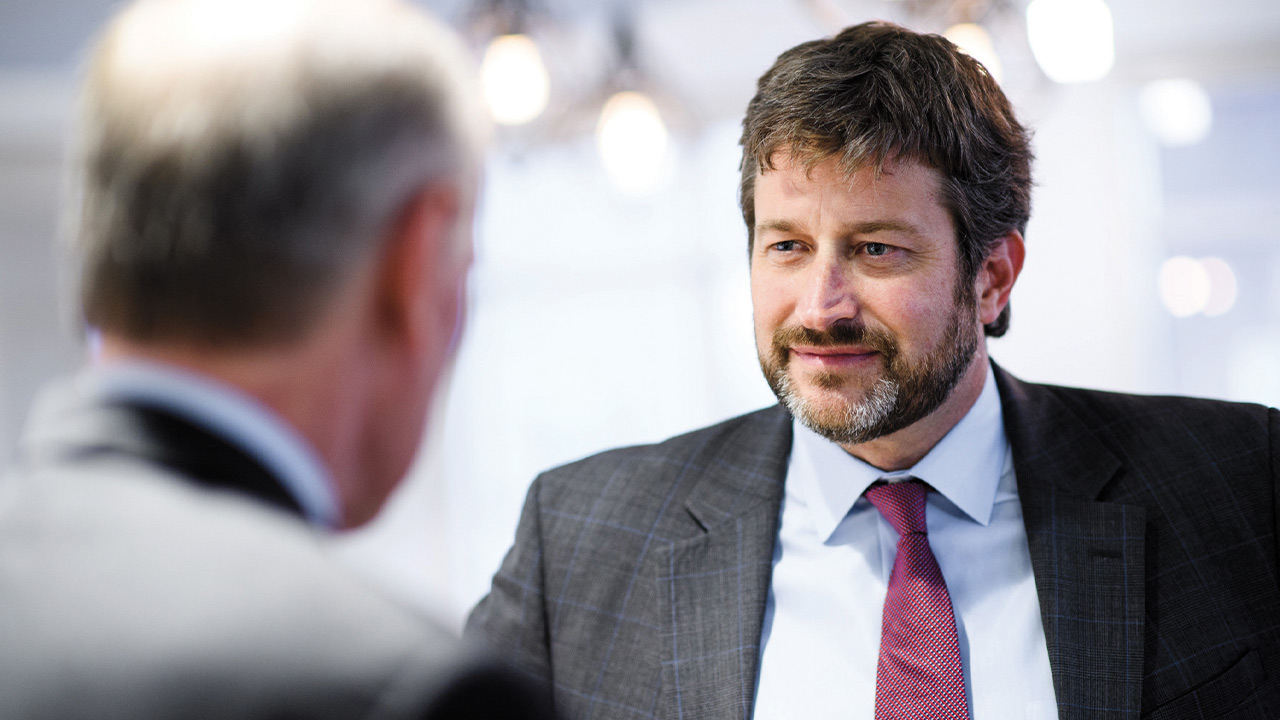
There is a quiet crisis in this country, one that one that escapes the attention of many Americans. And it goes to the core of our justice system. In America today, at least one party is unrepresented in three-quarters of civil cases.
As a result, an unacceptable number of our most vulnerable citizens — often poor and unaware of their options — find themselves with no protection in matters such as the daily threat of domestic violence and housing eviction that play out in courts every day.
The situation is so dire that, astonishingly, America ranks near the bottom worldwide in access to and affordability of civil justice. In this issue of the Penn Law Journal, faculty and alumni affiliated with our Future of the Profession Initiative, which is driving discussion on reform and innovation, diagnose the problem and they and others recommend potential solutions.
It all comes down to regulatory reform.
Despite having one of the highest per capita lawyer-to-population ratios in the world, there is no incentive structure — and not enough help — to meet the needs of all the people who can’t afford legal services.

#pennLaw

Professor Sandy Mayson calls out the flaw in assuming that former defense attorneys don’t have the capacity to serve as neutral judges pennlaw.news/3oc7d1K
Upcoming Penn Law Review article about auto safety in the age of the SUV by John Saylor L’22 cited in the @newyorker piece about electric vehicles: bit.ly/3omzkvw
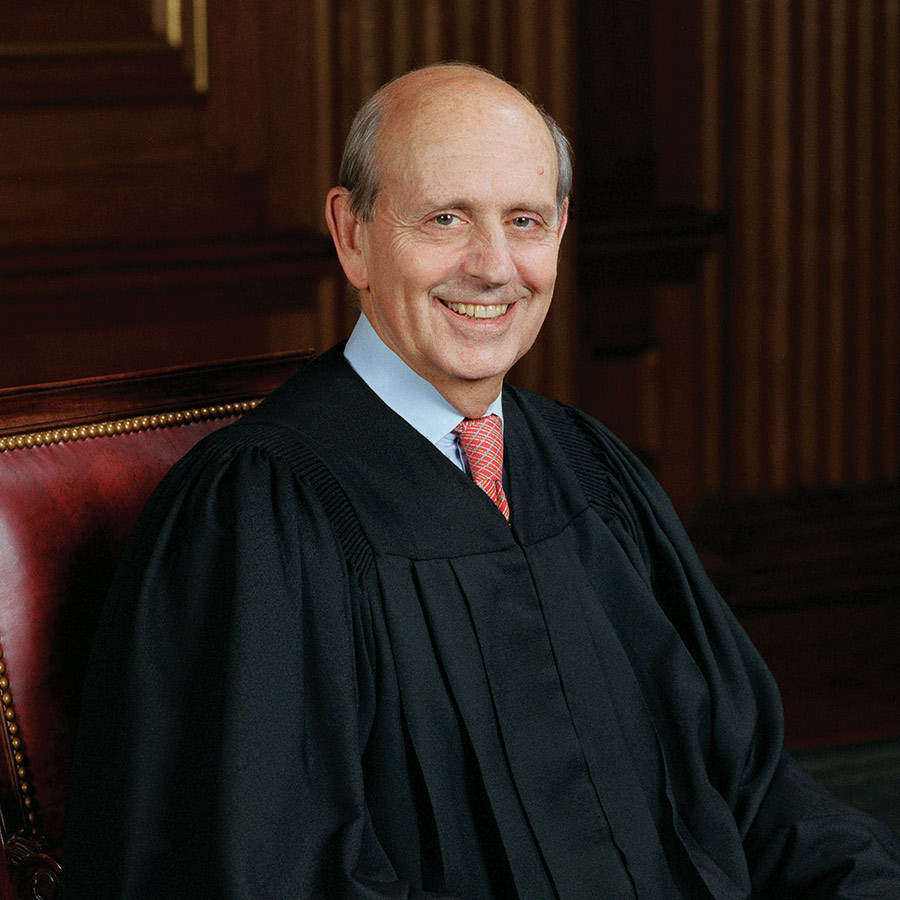
An unintended consequence of regulation requiring opt-in for overdraft fees is that banks target low-income customers, @NatashaRSarin of @pennlaw argues. bit.ly/34wrnMX

Dean Ted Ruger, former law clerk to Justice Breyer, discusses the retiring Justice’s legacy and the future of the Supreme Court on @whyy bit.ly/34woGej
Professor @allisonkhoffman warns that pop-up COVID-19 testing sites may not be regulated: nbcnews.to/3AQ1unD
Professor Cynthia Dahl lauds Taylor Swift’s re-recording songs as a smart move to regain copyrights: reut.rs/3siH17c
“Regulators have to catch up to it, and just as the wave with omicron in the last weeks was so intense that it outpaced demand, so quickly that regulators are trying to follow what is happening in such a rapid way that I think it does leave the regulator scrambling a little bit.”
Professor of Law
#pennLaw

An unintended consequence of regulation requiring opt-in for overdraft fees is that banks target low-income customers, @NatashaRSarin of @pennlaw argues. bit.ly/34wrnMX

Dean Ted Ruger, former law clerk to Justice Breyer, discusses the retiring Justice’s legacy and the future of the Supreme Court on @whyy bit.ly/34woGej

Professor Sandy Mayson calls out the flaw in assuming that former defense attorneys don’t have the capacity to serve as neutral judges pennlaw.news/3oc7d1K
Upcoming Penn Law Review article about auto safety in the age of the SUV by John Saylor L’22 cited in the @newyorker piece about electric vehicles: bit.ly/3omzkvw
“Regulators have to catch up to it, and just as the wave with omicron in the last weeks was so intense that it outpaced demand, so quickly that regulators are trying to follow what is happening in such a rapid way that I think it does leave the regulator scrambling a little bit.”
Professor of Law
Professor @allisonkhoffman warns that pop-up COVID-19 testing sites may not be regulated: nbcnews.to/3AQ1unD
Professor Cynthia Dahl lauds Taylor Swift’s re-recording songs as a smart move to regain copyrights: reut.rs/3siH17c
Follow @PennLaw on Twitter for more
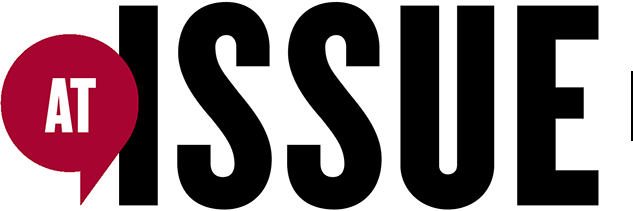

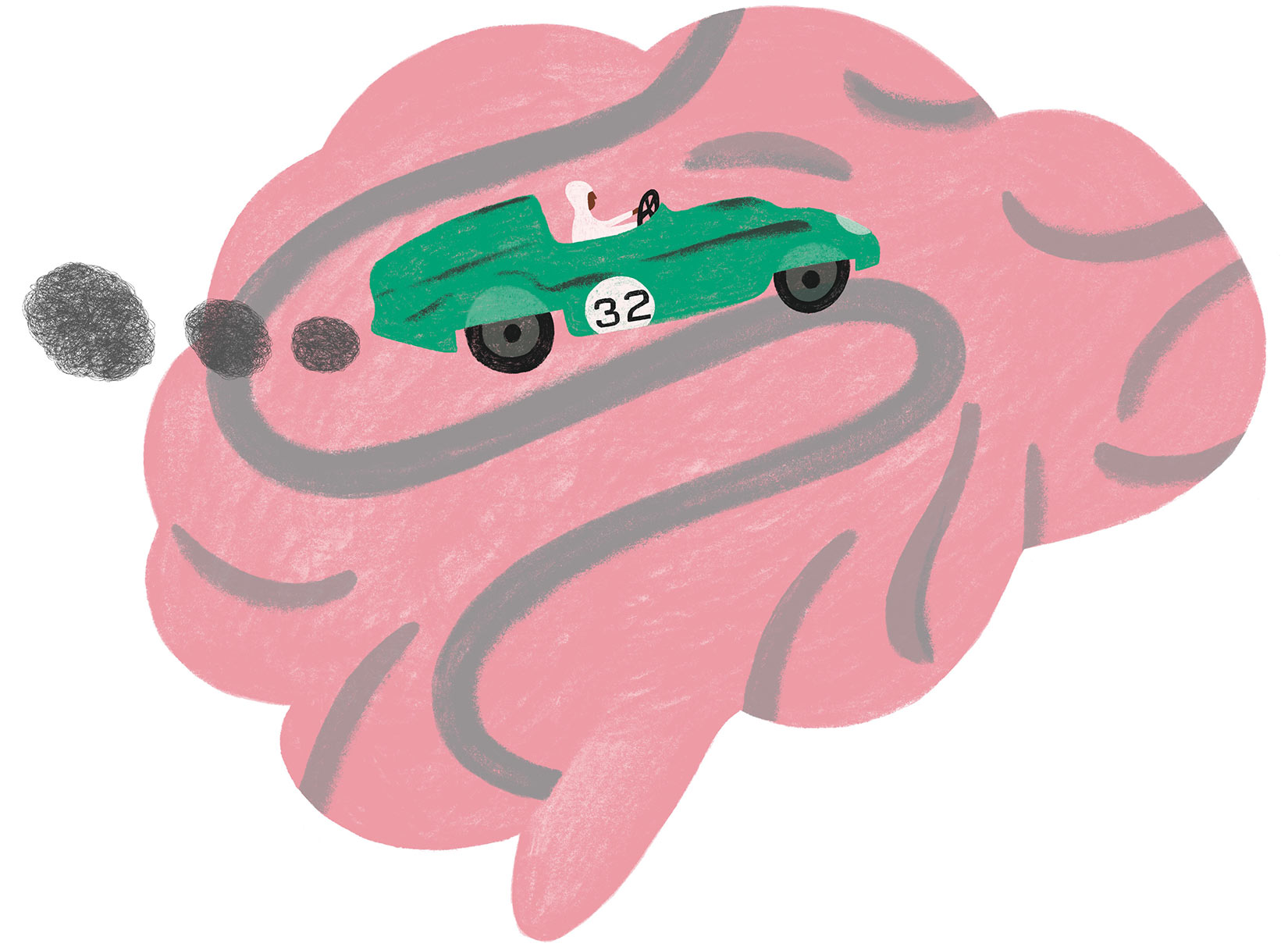
The Secret to Success in Law and Life
I was a commercial litigator for over 30 years in New York City. I thought I knew a lot about communications and interpersonal relationships. I understand the value of meticulous research and preparation.
What I didn’t appreciate was the gaping hole in my knowledge of peer-reviewed studies from the fields of psychology and neuroscience. If I had known about them, I would have been a better lawyer, a more effective mediator, and a far more skilled communicator. As a collateral benefit, all my relationships — personal, social and business — would have been immeasurably enhanced.
Here’s what I wish I had known.
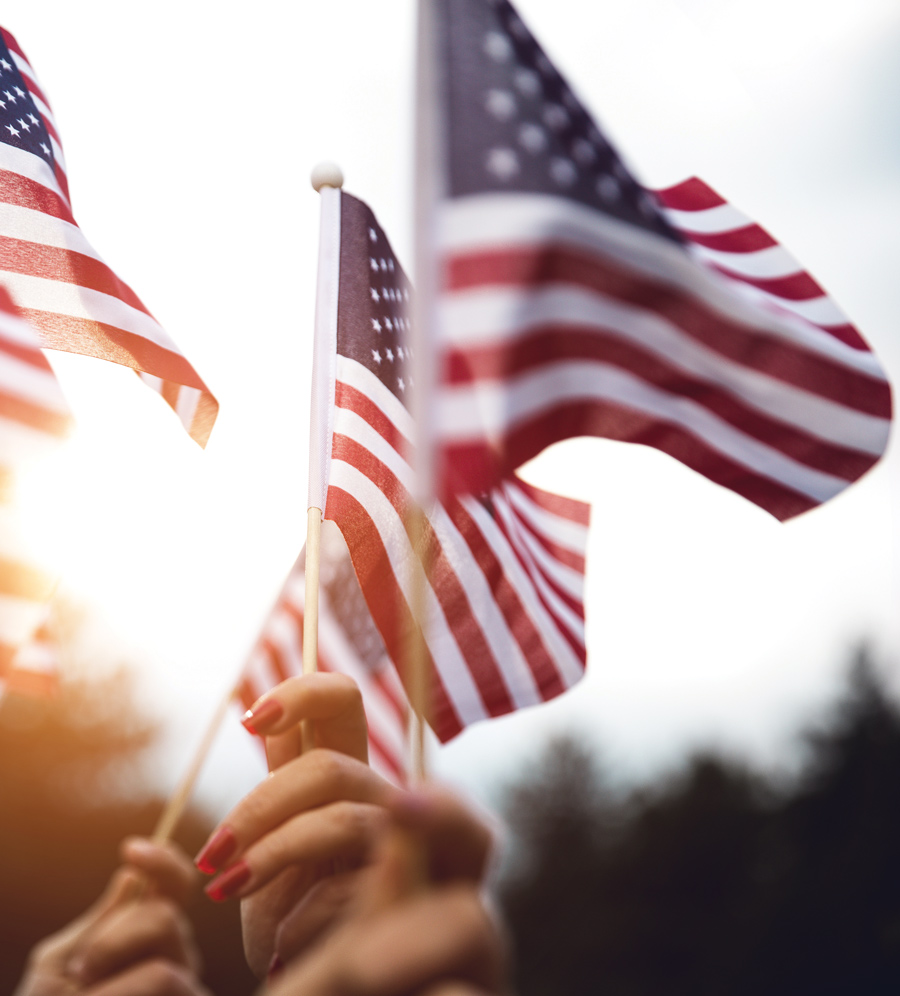
New Alumni Group Aims to Provide Civilian Foxhole for Veterans
Shupe, who had a decidedly different law school experience than most of his classmates, retired in 1999 as a lieutenant colonel after 23 years of service. He has spent the years since working with veterans, including those at the Law School, to ease their transition to civilian life.
“As a military officer, I naturally slipped into an advisory and mentoring role with many of my classmates, just as I had with the junior officers and enlisted personnel with whom I had served,” said Shupe, a Senior Partner at Schnader Harrison Segal & Lewis who returned to active duty for the Persian Gulf War during which he evacuated wounded soldiers and flew in weapons and personnel.
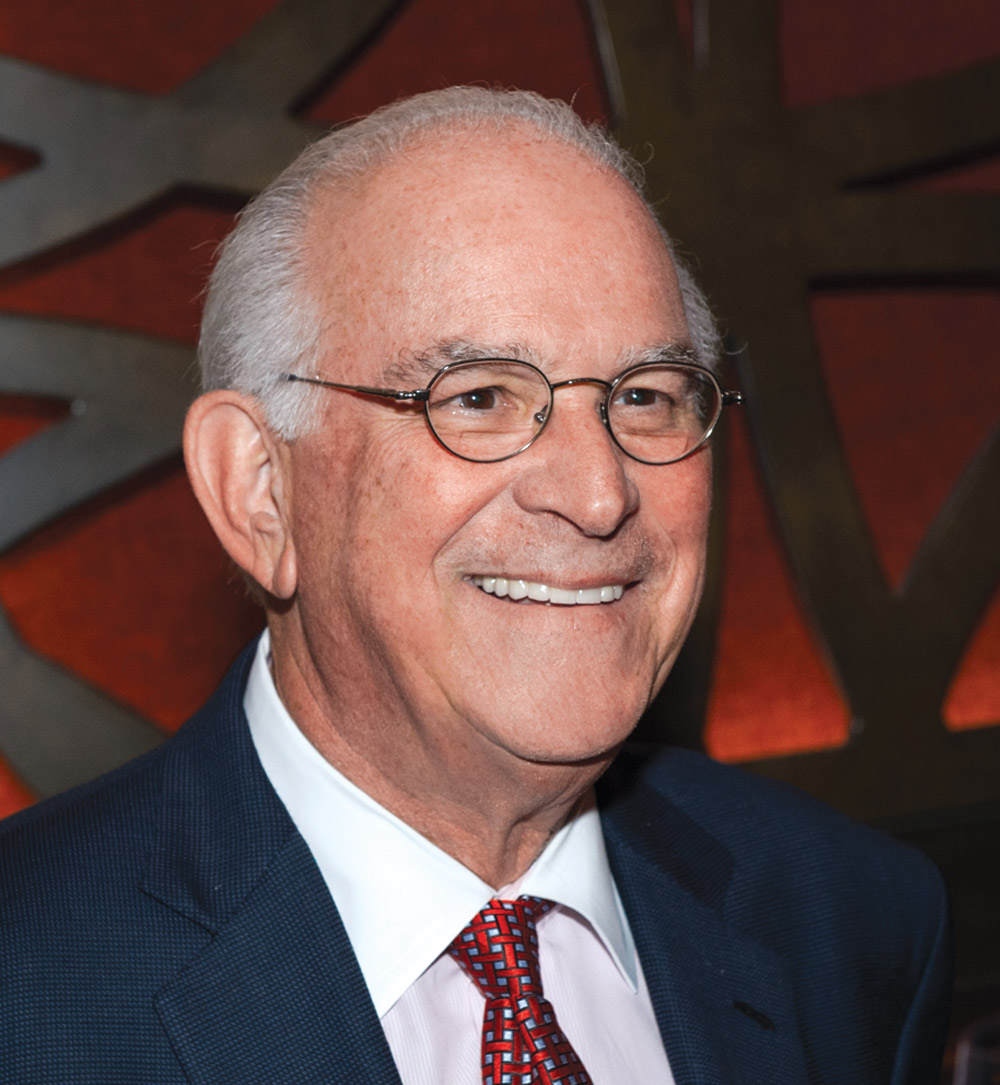
Philadelphia Civic and Legal Leader Stephen A. Cozen C’61, L’64 Proud to Enter Best of the Bar Hall of Fame in His Hometown
The Journal’s Editor-in-Chief Ryan Sharrow called Cozen’s selection “a clear choice,” and University of Pennsylvania Carey Law School Dean Ted Ruger and Bernard G. Segal Professor of Law echoed that sentiment.
“From even before I was Dean, Steve Cozen impressed me as the very model of a brilliant, ethical, civic-minded attorney — a role model for all of us in today’s legal marketplace,” Dean Ruger said. “My admiration has only increased exponentially since working closely with him these past many years on pressing issues facing legal education, our profession, and our democracy itself. I’m pleased to know and have learned from Steve and can think of no one more deserving of this high honor.”
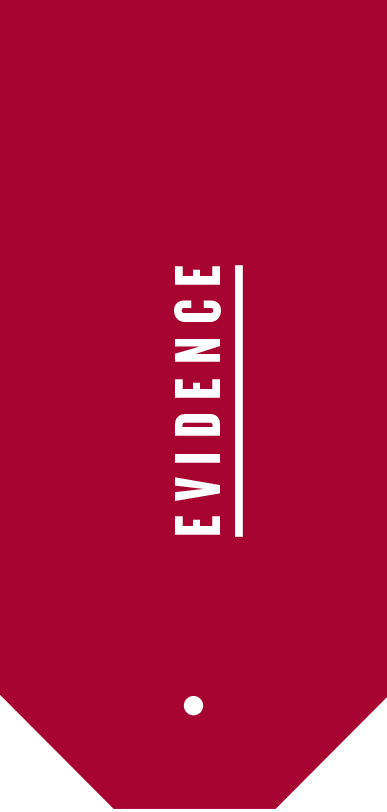
Law School Firsts












Beautiful Baskets
STEM Club Members Lean on Each Other in Law School
At first, law school can be a stretch for STEM students.
They’re wired and trained to think visually, not to read volumes of text.
So says Karen Joo L’23, co-president of the Penn Law STEM Club, formed to help law students with backgrounds in science, technology, engineering, and mathematics make the transition to a new study and learning regime.
“We don’t study well off just texts,” Joo said. “We tend to learn better from pictures.”
And apparently from each other. The STEM Club has more than doubled in membership since its founding in 2019. It has gone from nearly 30 members to 61 at present, 23 of whom are new this year. According to the Law School Admissions Office, STEM students make up approximately 20 percent of the student body.
The idea for the group stems from an experience that classmates Emily Losi L’21 and Maria Tartakovsky L’21 had when they were studying together for final exams their first year. Both realized they had different study habits than many of their peers.
Tartakovsky, who majored in biology with a concentration in computer science at the University of Florida, said she was accustomed to searching for the right answer in college only to find that law school exams were not about the best answer but rather a test of your ability to sort through issues and explain your thought process.

Targeting a Provision of the Common Decency Act, Karen Chesley L’09 Helped Put Sex Traffickers on the Run

“It really shut down the incentive for there to be a Backpage 2.0,” said Karen Chesley L’09, who had a direct hand in the victories against American sex trafficking as a pro bono attorney for Legal Momentum.
She recalls a feeling of horror when she discovered the prevalence of human sex trafficking — particularly of children — in the United States.
Infusion of Talent with Five New Faculty Members
These new hires are in addition to the eleven standing faculty members who have joined the Law School in the previous five years. They each bring a wealth of scholarly and experiential expertise and embody a range of diverse perspectives and methodologies in their teaching and research.
Lisa Fairfax
Before coming to Penn Law, Professor Fairfax was the Alexander Hamilton Professor of Business Law at George Washington University Law School, where she taught courses in the business arena, including Corporations, Contracts, and seminars covering topics in securities law, corporate transactions, and corporate governance. Additionally, she was the Director of the GW Corporate Law and Governance Initiative.
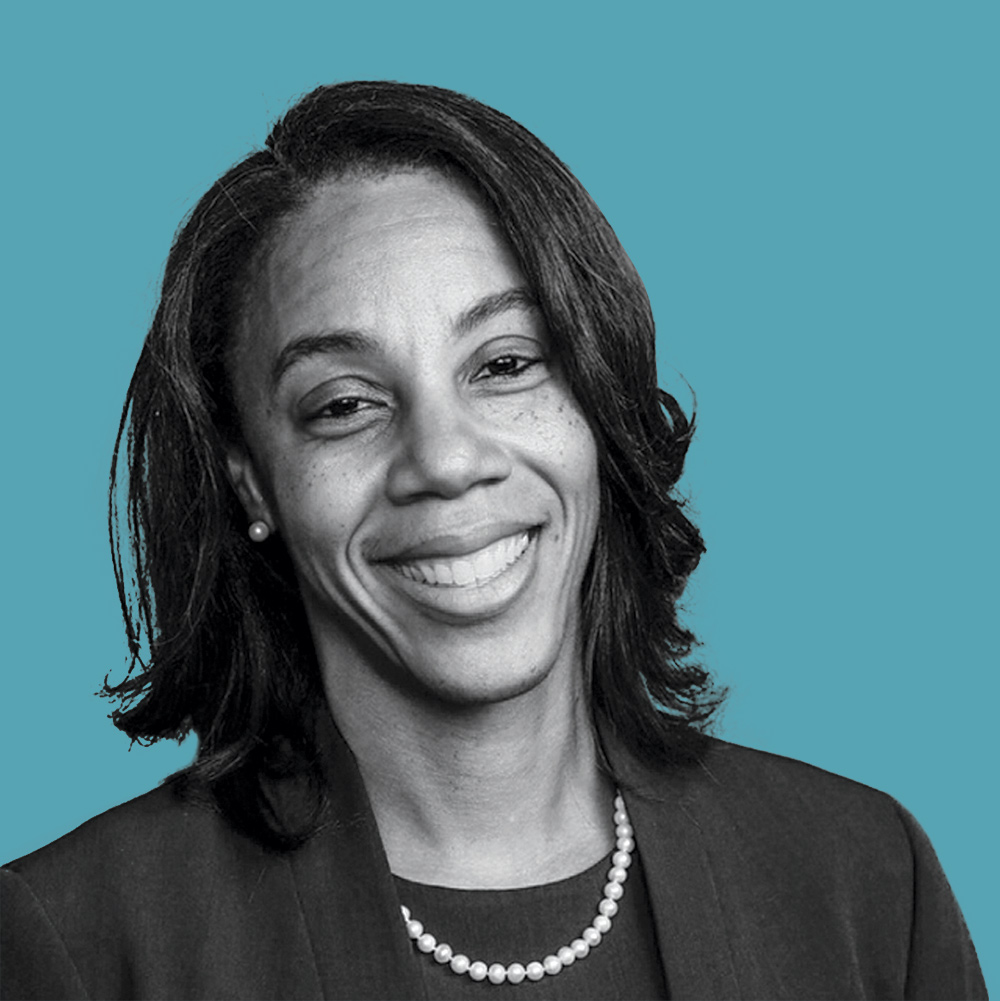
Lisa Fairfax
Citation

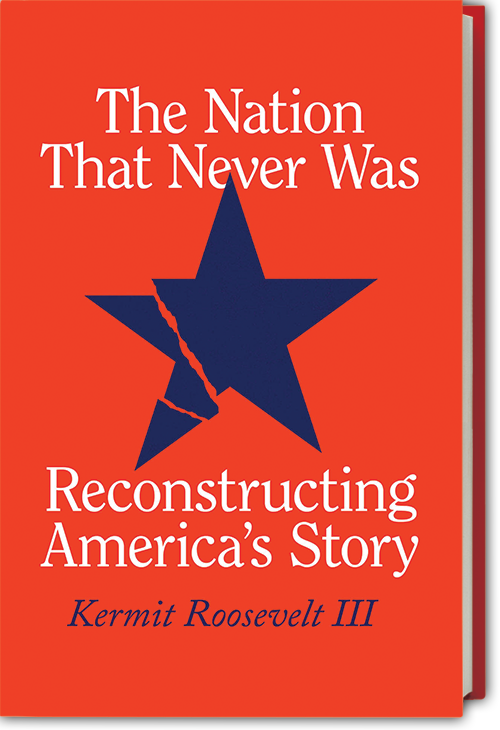
The Nation That Never Was: Reconstructing America’s Story
Kermit Roosevelt III, David Berger Professor for the Administration of Justice
University of Chicago Press
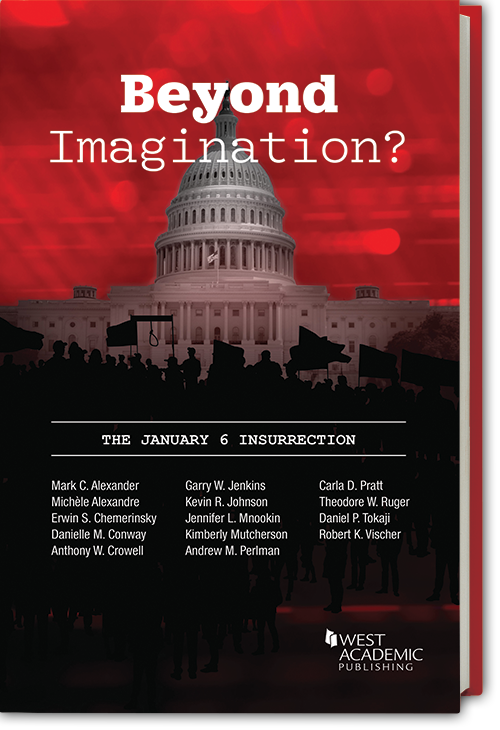
Beyond Imagination? The January 6 Insurrection
Ted Ruger, Dean of the University of Pennsylvania Carey Law School and Bernard G. Segal Professor of Law, contributed a chapter
West Academic Publishing
The book is a scholarly response to an unprecedented American attack on the Capitol. Fourteen deans from leading law schools examine the event and provide a legal perspective in the hope of moving the nation towards healing and a recommitment to the rule of law and the Constitution.
Dean Ruger contributed a chapter titled “The Primacy of Electoral Politics and Our Outdated Checks and Balances.” He analyzes the actions of state attorneys general and the untoward role of ideology in the administration of elections.
In addition, there are chapters on leadership, racism, the weakening of civics education, and the potential legal consequences for lawyers who promoted election conspiracies.
In the wake of the attack, the authors believe there is a need for new law school classes and the development of continuing education for lawyers that address the issues arising from the insurrection.

When America Turns 250, Joe Daniels L’98 Will Be Leading the Observance
It was a galvanizing moment for the country and for Daniels, launching him into what he calls “patriotic philanthropy.” Before long, he led the effort, as President and Chief Executive Officer, to build the 9/11 Memorial & Museum. Following that multiyear project, Daniels served as President and Chief Executive Officer of the Texas-based National Medal of Honor Museum, spearheading the effort to create the United States’ first-ever institution dedicated to preserving the legacies of the recipients of the country’s highest award for valor in combat.
And now, he’s poised to tackle another extremely challenging project: He’s been named President and CEO of the America250 Foundation. As such, he’s charged with organizing a rousing and meaningful commemoration in 2026 that, as the announcement of his appointment noted, will “unleash the American spirit” and “demonstrate the lasting durability” of America. Tall order.
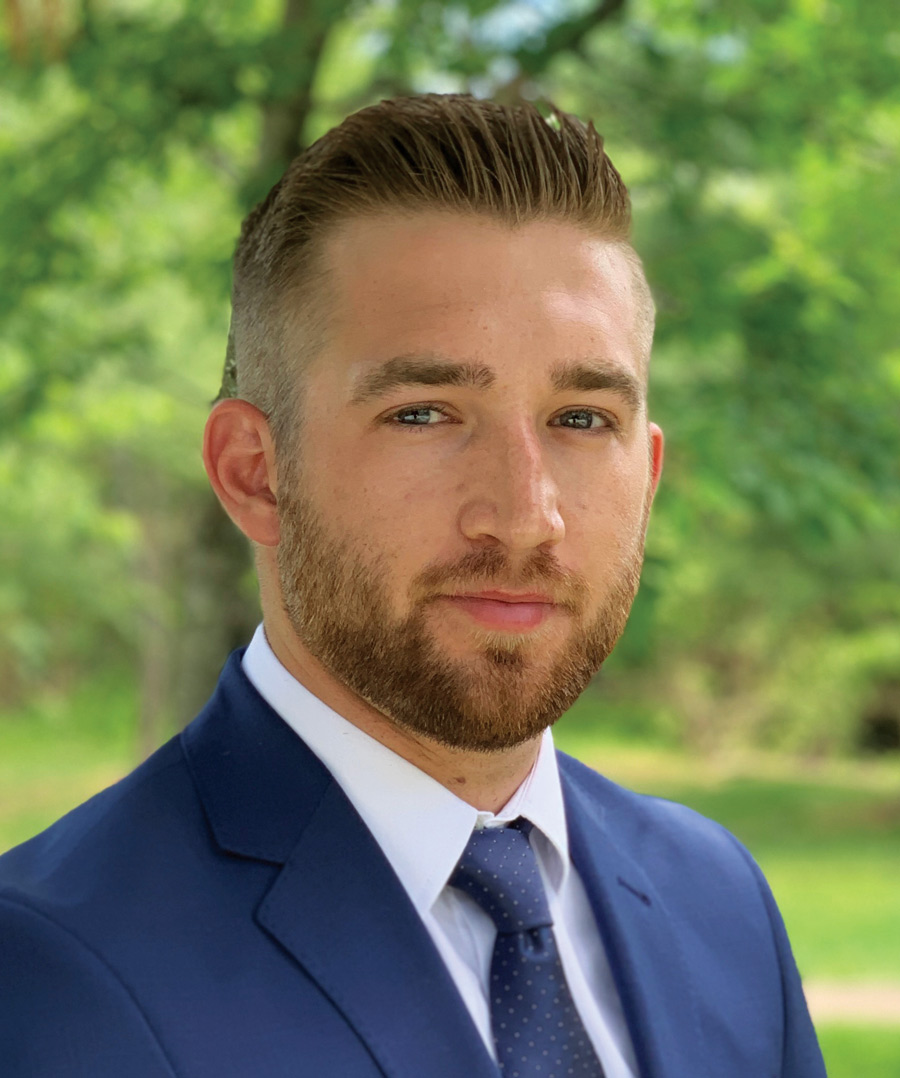
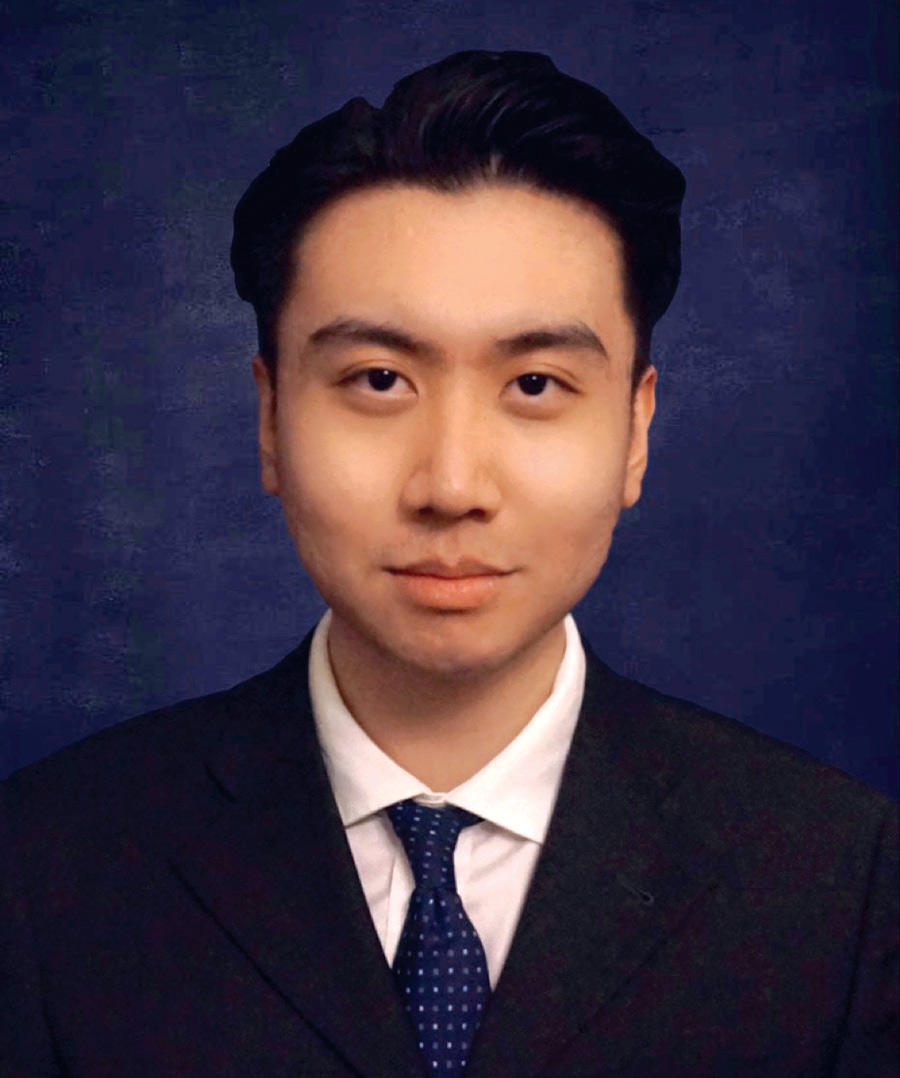
 Caleb Greene L’24 (left) and Harvey Lou L’24 had eye-opening experiences as Weil Legal innovators.
Caleb Greene L’24 (left) and Harvey Lou L’24 had eye-opening experiences as Weil Legal innovators. Caleb Greene L’24 (top) and Harvey Lou L’24 had eye-opening experiences as Weil Legal innovators.
Caleb Greene L’24 (top) and Harvey Lou L’24 had eye-opening experiences as Weil Legal innovators.Weil Legal Innovators Program Helps Students Pave Legal Career Paths
Confronting death and racial injustice was a real eye-opener for a guy from a two-stoplight, white, middle-class town named Liberty, Indiana: population 2,000. The new Weil Legal Innovators (WLI) program, sponsored by Weil, Gotshal & Manges LLP, gave Greene this growth opportunity during its first year of operation. The philanthropic initiative provides funding for students at participating law schools to defer their first year of study to work at one of WLI’s partner nonprofit organizations.
Greene chose the Aspen Institute, a venerable organization committed to change through the Aspen Challenge and the Aspen Young Leadership Fellows (AYLF) program. Through the Aspen Challenge, the Institute invites speakers to challenge high school students in a particular city to undertake projects for civic betterment. In Miami this past year, for instance, students were charged with cleaning up beaches, improving financial literacy, and creating a mental health app. In the Fellows program, college students receive resources and technical assistance to design initiatives that address pressing issues and foster community change.
Civil Injustice
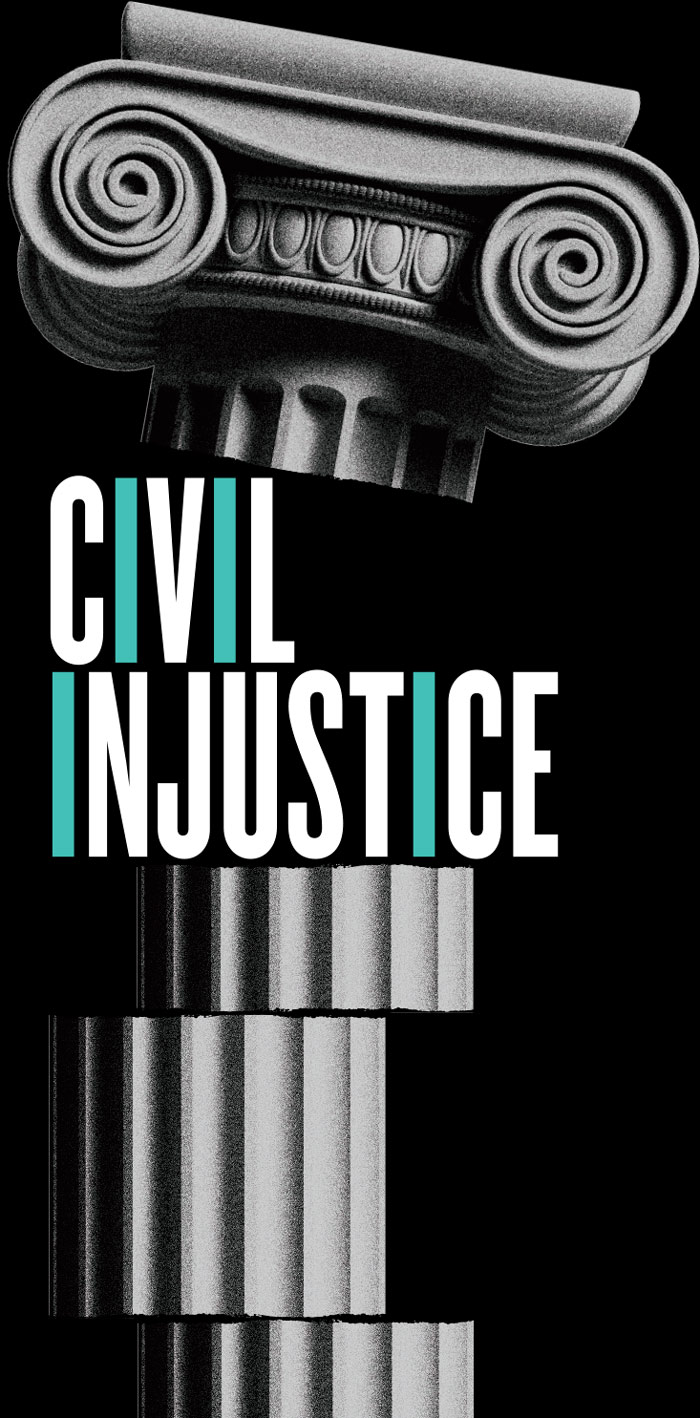
By Larry Teitelbaum
Civil Injustice

By Larry Teitelbaum
It is not a matter of poor and middle-income people and small business owners falling through the cracks; the chasm is more like a sinkhole — a situation that Jim Sandman L’76, Distinguished Lecturer and Senior Consultant to The Future of the Profession Initiative (FPI) at the University of Pennsylvania Carey Law School, finds intolerable. He is deeply disturbed by how far the country has strayed from the promise of justice for all.
For years, he led Arnold & Porter, one of the most storied law firms in America, and lived and worked at the center of power in Washington, D.C., where he counseled corporate power brokers, oversaw the influential District of Columbia Bar, and sat on important law committees. Yet, by his own account, he had no idea how broken the civil justice system had become in America, calling it an “invisible” issue that eludes the attention of most Americans and most lawyers.
Then he became President of the Legal Services Corporation (LSC), the largest funder of civil legal aid programs in the United States, and he quickly realized the magnitude of the problem. Today, he advocates for root and branch reform of the civil legal system.


In January of this year, Katie Thomson L’90 left Amazon to return to the U.S. Department of Transportation as the Director of Bipartisan Infrastructure Law Implementation.

But Amazon, which employs more than 1.3 million workers worldwide and operates 110 fulfillment facilities in the United States, is not resting on its Prime laurels. The company is setting its sights on a loftier delivery-time goal: a half-hour turnaround by drone delivery.
In December 2016, Amazon successfully completed its first trial delivery by autonomous drone from its test site in England. The GPS-guided electric drone, which flies below 400 feet and can carry up to five pounds, landed and deposited a package in the bucolic backyard of an Amazon customer. Video footage shows the Cambridgeshire customer picking up his box, which contained dog biscuits and an Amazon Fire TV remote, from the yard with ease.
Katie Thomson L’90, the former Vice President and Associate General Counsel of Worldwide Transportation and Sustainability at Amazon (see Editor’s Note), said the company aims to make ubiquitous drone delivery a reality.




First Generation Professionals Fellow and Editor-in-Chief of the University of Pennsylvania Law Review
Campaign
Close
This transformative campaign solidified the Law School’s position at the vanguard of elite legal education, with landmark gifts from the W. P. Carey Foundation and the Robert and Jane Toll Foundation propelling the historic effort. These contributions, combined with the support of alumni and friends from across the Law School community, have uniquely positioned the Law School to forge a new brand of legal education by expanding cross-disciplinary opportunities, increasing access through financial aid, broadening pathways to service for students who will change the world for the better, and recruiting a diverse cohort of faculty engaged in cutting-edge legal scholarship.
“Thanks to The Power of Penn Law and the generosity of the W. P. Carey Foundation, the Robert and Jane Toll Foundation, and our committed and engaged Board of Advisors and alumni, the University of Pennsylvania Carey Law School is fostering an innovative educational environment to train the lawyers and changemakers of tomorrow,” said Ted Ruger, Dean and Bernard G. Segal Professor of Law.
Fine Print

1960s

Betsy Cohen, L’66 founder of FTAC Athena Acquisition Corp., a blank check company, agreed to merge with business services firm Pico. The deal valued the company at $1.75 billion. The special purpose acquisition company (SPAC) is also raising $200 million of equity to support the Pico transaction. Pico provides market data and analytics to financial services companies including banks, exchanges, hedge funds, and other financial technology providers. FTAC Athena Acquisition raised $250 million in its IPO in February. The vehicle focused on finding targets in technology or financial technology, according to its filings with the Securities and Exchange Commission. The combined company will trade on Nasdaq once the deal closes. Additionally, FTAC Emerald Acquisition Corp, which is another SPAC Cohen is backing, plans to raise up to $220 million through an initial public offering in the United States. The blank-check company, known earlier as Emerald ESG Acquisition Corp, is offering 22 million units at $10 each, and Cohen will chair its board. Emerald ESG Sponsor, a firm managed by Cohen and a backer of FTAC Emerald, has committed to buy 890,000 units at $10 each in a private placement.
Bruce Hermelee L’66 was honored at a 50-Year Member and Senior Counselor Recognition Luncheon in Orlando held by the Florida State Bar. Honorees were recognized both for their good standing and for practicing for 50 years in the Florida Bar or having cumulative legal practice with the Florida Bar and other United States jurisdictions for a total of five decades. Hermelee was admitted to the Florida Bar in 1971.

Legal Trouble Abroad? Call Dick Atkins L’62
His crime was using a satellite cell phone during his travels, which was a cheaper and easier option to use in India. The phones had been banned in the country after terrorists used them to communicate during the 2008 Mumbai attacks.
The doctor had been unaware of this law until his arrest.
“The prisons in India are so dismal and so dangerous and horrible,” said Atkins, who is a principal and legal counsel for International Recoveries LLC, which assists travelers who find themselves in legal trouble abroad. “Not many would have survived this.”
Atkins’ company operates a 24/7 hotline for insured travelers experiencing problems.
Through his connections, Atkins prevented incarceration. “He got his passport back, and the case is still open in absentia,” Atkins said. “He and his wife got back safely.”

In Remembrance of Lani Guinier, Former Law School Professor and Pioneering Civil Rights Advocate
he Law School remembers and honors the legacy of Lani Guinier, who taught here from 1988 and 1998 and passed away on Friday, January 7, 2022.
With heavy hearts, the University of Pennsylvania Carey Law School joins others in legal academia and the profession as a whole in mourning the passing and honoring the remarkable legacy of Lani Guinier, a brilliant and influential scholar and lawyer.
Guinier was a faculty member at the Law School for 10 years, from 1988 to 1998, and inspired students in our classrooms as she produced some of her most authoritative scholarship.
Dean Emeritus Colin Diver, who served as the dean of the Law School from 1989 to 1999, recalls Guinier’s unequivocal commitment to civil rights and racial justice.
“During Lani’s 10-year tenure at Penn Law, Lani pushed the envelope in many important and constructive ways: advocating for alternative voting methods, such as cumulative voting, questioning the implicit expectations of law school faculty that female students behave like ‘gentlemen,’ or proposing alternative methods for evaluating and selecting applicants to the Law School,” Diver said. “As a scholar, teacher, and public intellectual, she made immense and lasting contributions.”
ADJOURNED
The LLM Class of 2021 will never forget its American sojourn. In December, after a year buffeted by the COVID-19 pandemic, 39 graduate students gathered in Fitts Auditorium for commencement, followed by a champagne toast in the courtyard. And now, on to new challenges.
ADJOURNED
The LLM Class of 2021 will never forget its American sojourn. In December, after a year buffeted by the COVID-19 pandemic, 39 graduate students gathered in Fitts Auditorium for commencement, followed by a champagne toast in the courtyard. And now, on to new challenges.
